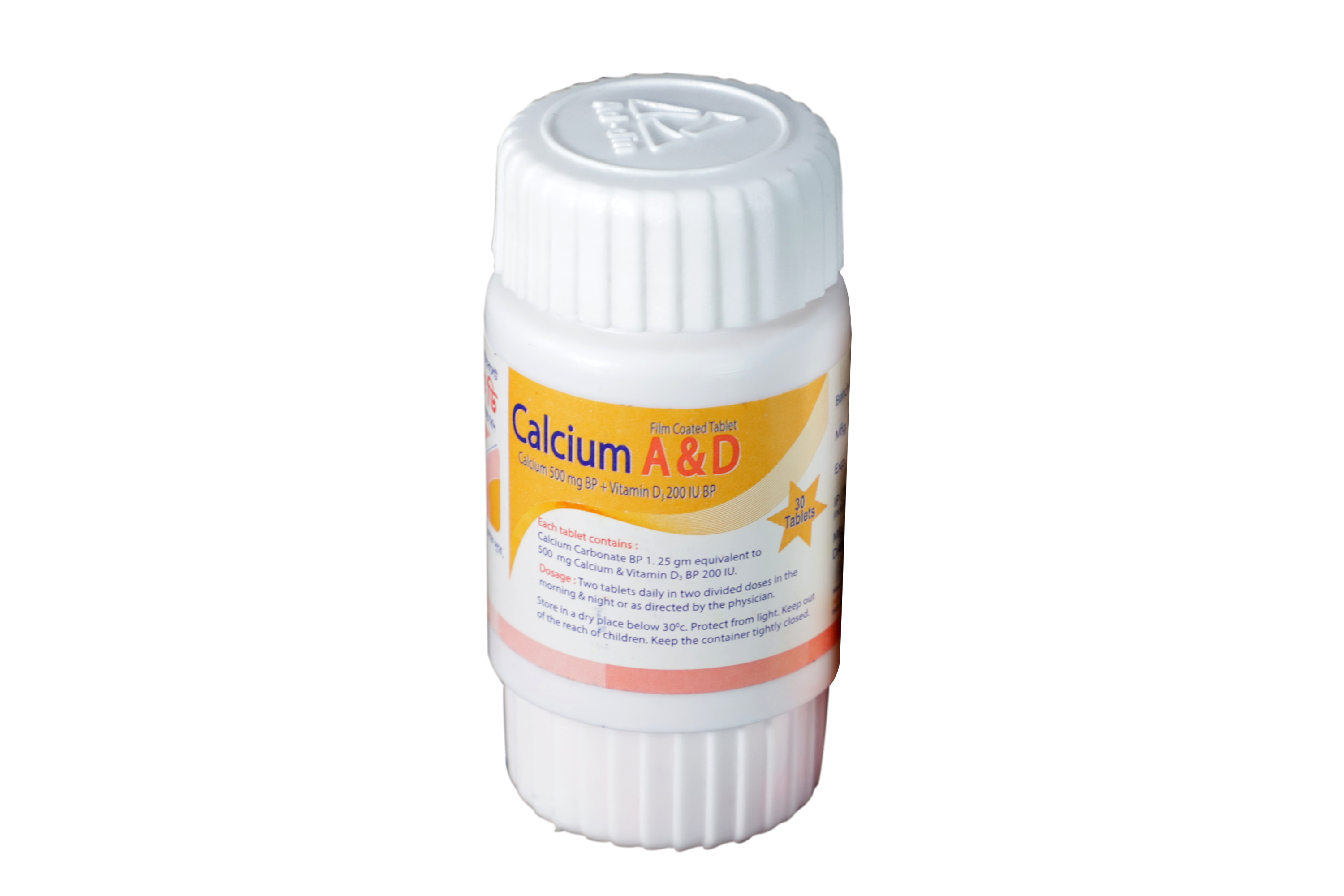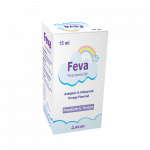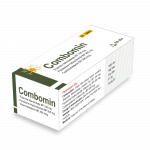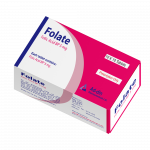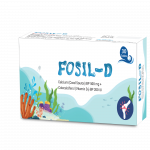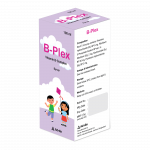Composition
Each tablet contains 1.25 g of elemental Calcium Carbonate BP equivalent to 500 mg of elemental Calcium and 200 IU as Cholecalciferol BP equivalent to Vitamin D3.
Pharmacology
This is the preparation of calcium carbonate and Vitamin D3(Cholecalciferol): Calcium is necessary for many normal functions of our body, especially bone formation and maintenance.
Vitamin D. helps with the absorption & reabsorption of calcium. Vitamin D3 also stimulates bone formation. Clinical studies showed that Calcium and Vitamin D3 all together helps in bone growth, and in the prevention of osteoporosis & bone fracture.
Indications
Calcium- A & D is indicated for the treatment & prevention of osteoporosis, osteomalacia, tetany, hypoparathyroidism, disorders of osteogenesis. Also used as a upplement in case of inadequate intake of Calcium in childhood diet, rickets, pregnancy & lactation, elderly patients. Other indications include pancreatitis, phosphate binder in chronic renal failure etc.
Dosage & Administration
One tablet once or twice daily with plenty of water or as directed by the physician. Taking in full stomach ensures better absorption.
Contraindications
Hypersensitivity to any of the components, hypocalcaemia resulting from overdose of Vitamin D3, hyperparathyroidism, bone metastases, severe renal insufficiency, severe hypercalciuria, renal calculi etc.
Precautions
In presence of mild hypercalciuria, careful monitoring with reduction of dose may be needed. Plasma and serum Calcium level should be monitored in mild to moderate renal impairment and also in case of long term use. Patients with renal stone or with such previous history should also take precaution.
Side effects
Flatulence, diarrhoea, constipation, upper GI discomfort etc. are rare manifestation. Hypercalcaemia due to prolong use has rarely been reported.
Use in Pregnancy and Lactation
Calcium- A & D can be given to pregnant and lactating mothers as per recommendation of physician.
Drug Interaction
Oral Calcium can reduce the absorption of tetracycline & fluoride preparations and minimum 3 hours’ time should be allowed between ingestion of these medications. Thiazide diuretics reduces the renal excretion of Calcium. Phenytoin, barbiturates, glucocorticoids may induce metabolism of Vitamin D3. Concomitant ingestion of certain foods like spinach, cereals, milk and its derivatives may reduce the intestinal uptake of Calcium.
Overdose
At high doses it may result in nausea, vomiting, dizziness, anorexia, abdominal cramps, headache, constipation, irritability etc. Treatment includes cessation of therapy and adequate rehydration.
Storage
Store below 30°C, protect from light and moisture. Keep out of reach of children
Packaging
Calcium- A & D tablet: Each pot contains 30 tablets in HDPE container

